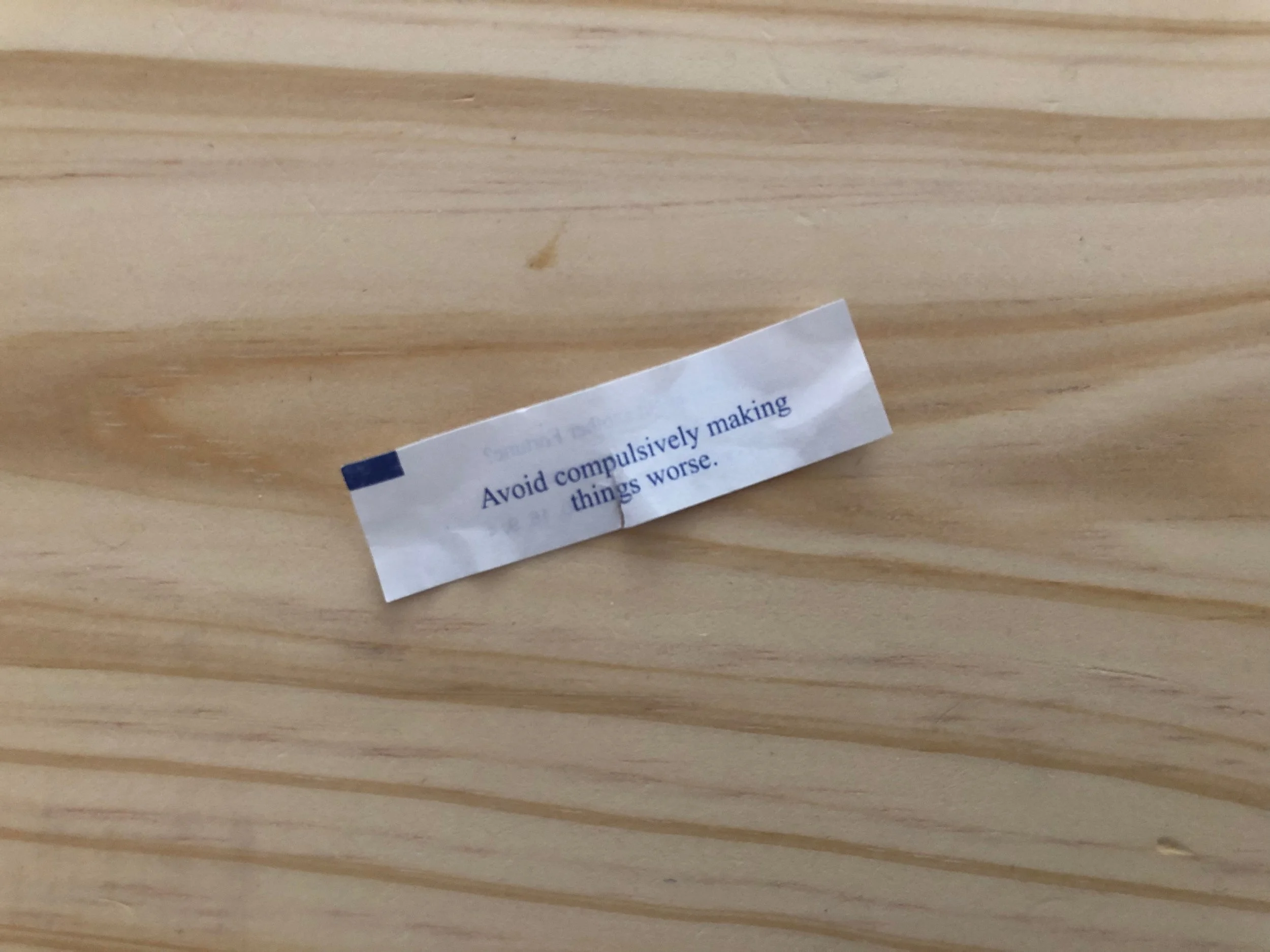When to correct a mistake
Even if the cobblestones had some rough edges at first, they will eventually be worn down smooth.
The other day, my little nephew, who can say a mere handful of words, pulled out a pretty impressive one: “delivery.”
Eh, why spend all that energy on one, two, and three syllable words when you can jump to four? It’s a testament to his love of vehicles and the value of intrinsic motivation that he summoned the wherewithal to name the delivery truck.
Well, actually, it came out more as “delivawee.” But it was recognizable.
As this little guy begins to put his words together into sentences, he will inevitably make all the predictable grammar errors that are part of that learning process. And it will be pointless for his parents to correct him. Instead, they can simply encourage him to keep talking.
There are times when it is important to correct a mistake that someone else has made. If I’m the navigator and I told you to go right and you went left, I should tell you. (More commonly, I told you to go right when you were supposed to go left because I struggle with right and left, but that is another story.) If you left the stove on, I should tell you. If your fly is down, I should (discreetly) tell you.
Other times, if I notice an error (and especially if I just think there was an error), should probably keep it to myself.
There are times when I am actively collaborating with a person and mutually responsible for an outcome. As an educator and employer, these are the questions I keep in mind:
Am I the right person to offer this feedback?
Is now the right time?
Is there any benefit, either short term or long term, to correcting this person?
Does this person have the ability to implement my feedback right now or in the near future?
The right feedback at the right time is powerful. It helps someone to get the feel for something (“No, not like this, like that…Yes, like that! Just like that!”). It can help to identify or prevent larger problems (“You forgot to reconnect the emergency core cooling system when you left for the day.”). It can give people valuable information (“When C comes right before I, it makes an S sound. So this word isn’t ‘kitty,’ it’s…”).
On the other hand, the wrong feedback at the wrong time — or the right feedback at the wrong time — is not useful or could even be actively harmful. Our mistakes do not always stem from lack of knowledge, effort, or attention, so trying to add information or redirect someone’s effort or attention will not improve things.
Sometimes, we are not developmentally prepared for what we’re trying to do. We can’t even see that what we’re doing is wrong. That’s when corrections become pointless. Another of my nephews says, “fraw” instead of “straw.” If we playfully say to him, “here’s a fraw,” when we hand him a straw, he looks at us like we’re crazy and corrects us. “Not fraw — frawww!”
At a recent tennis clinic, I was overwhelmed with tactical information from not one but two pros. Everything they said went over my head. My mishandling of the ball was not going to be improved by information about how to foil my opponents. I just needed to practice getting the my racquet on the dang thing and getting it over the net. I wasn’t ready for their very thoughtful advice.
If we are repeatedly corrected on the same thing — a thing that we either are not prepared to fix or are already trying desperately to fix — we may become demoralized. Often, we need feedback on what’s going well more than we need corrections on what to improve. If we rarely get praise or encouragement, we will eventually lose interest in what we’re doing. Performance will decline or we might even quit.
There are moments when we have to clearly identify that something didn’t work. But most of the time, we get better results when we build on what’s already working. My little nephews are picking up words all the time, and they are eager to try out their new words and express themselves. This is something to celebrate and cultivate rather than to fix.
We are constantly making sense of the world around us. We learn from our own mistakes and those of others, adapting and tweaking, trying and failing. We are constantly receiving feedback and information from our environment that will help us improve. Whenever possible, those of us in positions of power or greater knowledge should help facilitate this process instead of intervening, empowering the other person to learn from and correct their own mistakes.






